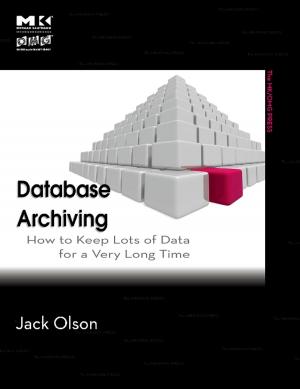Handbook of Digital Forensics and Investigation
Nonfiction, Computers, Advanced Computing, Information Technology, Networking & Communications, Computer Security, Social & Cultural Studies, Social Science| Author: | Eoghan Casey, BS, MA | ISBN: | 9780080921471 |
| Publisher: | Elsevier Science | Publication: | October 7, 2009 |
| Imprint: | Academic Press | Language: | English |
| Author: | Eoghan Casey, BS, MA |
| ISBN: | 9780080921471 |
| Publisher: | Elsevier Science |
| Publication: | October 7, 2009 |
| Imprint: | Academic Press |
| Language: | English |
Handbook of Digital Forensics and Investigation builds on the success of the Handbook of Computer Crime Investigation, bringing together renowned experts in all areas of digital forensics and investigation to provide the consummate resource for practitioners in the field. It is also designed as an accompanying text to Digital Evidence and Computer Crime.
This unique collection details how to conduct digital investigations in both criminal and civil contexts, and how to locate and utilize digital evidence on computers, networks, and embedded systems. Specifically, the Investigative Methodology section of the Handbook provides expert guidance in the three main areas of practice: Forensic Analysis, Electronic Discovery, and Intrusion Investigation. The Technology section is extended and updated to reflect the state of the art in each area of specialization. The main areas of focus in the Technology section are forensic analysis of Windows, Unix, Macintosh, and embedded systems (including cellular telephones and other mobile devices), and investigations involving networks (including enterprise environments and mobile telecommunications technology).
This handbook is an essential technical reference and on-the-job guide that IT professionals, forensic practitioners, law enforcement, and attorneys will rely on when confronted with computer related crime and digital evidence of any kind.
*Provides methodologies proven in practice for conducting digital investigations of all kinds
*Demonstrates how to locate and interpret a wide variety of digital evidence, and how it can be useful in investigations
*Presents tools in the context of the investigative process, including EnCase, FTK, ProDiscover, foremost, XACT, Network Miner, Splunk, flow-tools, and many other specialized utilities and analysis platforms
*Case examples in every chapter give readers a practical understanding of the technical, logistical, and legal challenges that arise in real investigations
Handbook of Digital Forensics and Investigation builds on the success of the Handbook of Computer Crime Investigation, bringing together renowned experts in all areas of digital forensics and investigation to provide the consummate resource for practitioners in the field. It is also designed as an accompanying text to Digital Evidence and Computer Crime.
This unique collection details how to conduct digital investigations in both criminal and civil contexts, and how to locate and utilize digital evidence on computers, networks, and embedded systems. Specifically, the Investigative Methodology section of the Handbook provides expert guidance in the three main areas of practice: Forensic Analysis, Electronic Discovery, and Intrusion Investigation. The Technology section is extended and updated to reflect the state of the art in each area of specialization. The main areas of focus in the Technology section are forensic analysis of Windows, Unix, Macintosh, and embedded systems (including cellular telephones and other mobile devices), and investigations involving networks (including enterprise environments and mobile telecommunications technology).
This handbook is an essential technical reference and on-the-job guide that IT professionals, forensic practitioners, law enforcement, and attorneys will rely on when confronted with computer related crime and digital evidence of any kind.
*Provides methodologies proven in practice for conducting digital investigations of all kinds
*Demonstrates how to locate and interpret a wide variety of digital evidence, and how it can be useful in investigations
*Presents tools in the context of the investigative process, including EnCase, FTK, ProDiscover, foremost, XACT, Network Miner, Splunk, flow-tools, and many other specialized utilities and analysis platforms
*Case examples in every chapter give readers a practical understanding of the technical, logistical, and legal challenges that arise in real investigations















